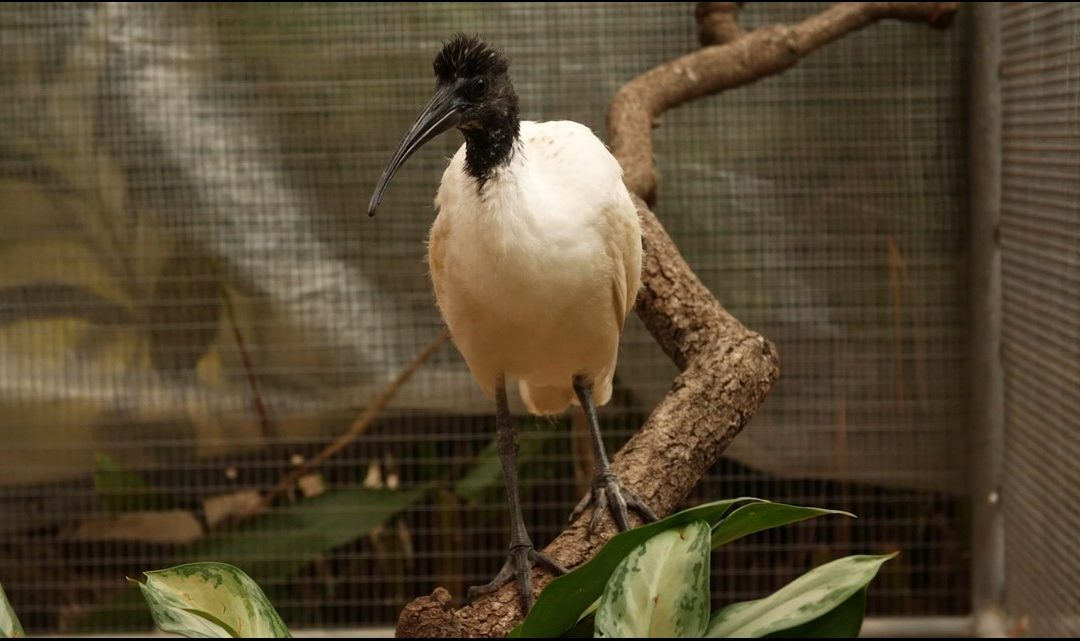The Houston Zoo recently celebrated a historic milestone as the first Malagasy sacred ibis chick successfully hatched in North America. The endangered species is facing a critical population decline, with only an estimated 2,300 to 3,000 birds left in the world. The hatching of the chick, named Vorotsara, is a significant achievement in the conservation efforts for this at-risk species.
The Malagasy sacred ibis is a strikingly beautiful bird, characterized by its large white body, fluffy black feathers, and distinct blue eyes. Standing at two to three feet tall with a wingspan of three to four feet wide, these birds are a sight to behold. However, their limited range, habitat loss, and susceptibility to poaching have contributed to their endangered status.
The successful hatching of Vorotsara at the Houston Zoo is a result of dedicated care and conservation efforts. When the zoo’s care team noticed that the eggs were not being properly incubated, they made the decision to artificially incubate the chick with the intention of returning it to its parents. Unfortunately, the parents abandoned the nest, and the team stepped in to hand-rear the chick.
To ensure the well-being of Vorotsara, the zoo implemented strict measures, including creating a quiet zone to separate the chick from human voices, wearing face coverings during interactions, and even providing a crochet stuffed ibis for companionship. The ultimate goal is to safely integrate Vorotsara into the flock and contribute to the preservation of the species.
The successful hatching of Vorotsara is a testament to the zoo’s commitment to wildlife conservation and the protection of endangered species. It serves as a reminder of the importance of collective efforts to safeguard at-risk wildlife and preserve the biodiversity of our planet.
As the world continues to face environmental challenges, such as habitat loss and climate change, the conservation efforts at the Houston Zoo and similar organizations play a crucial role in protecting wildlife and promoting sustainable practices. Through education, research, and stewardship, we can work together to ensure the survival of precious species like the Malagasy sacred ibis for future generations to appreciate and cherish.
